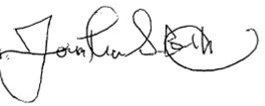Playing the Blame Game
“Playing the Blame Game.”
The 1980s were known for catchy ‘bops’ that achieved ‘one hit wonder’ status. “Blame It on the Rain,” by Milli Vanilli is one of those tunes that most everyone remembers and can sing on command. It’s perfect for karaoke! The chorus of the song goes like this:
Blame it on the rain that was falling, falling
Blame it on the stars that didn’t shine that night
Whatever you do, don’t put the blame on you
These lyrics summarize Adam & Eve’s thoughts and actions thousands of years ago. Not much has changed today. We live in a perpetual state of blame which illustrates an emotionally unhealthy society at all levels. Below, let’s examine why it’s so easy to stay stuck in the destructive cycle of blaming, and the catastrophic results that occur as a result.
1. Fear.
Right before Genesis 3:12-13 here’s the conversation between God and Adam that took place in verses 8-10: “Then the man (Adam) and his wife (Eve) heard the sound of the Lord God as He was walking in the garden in the cool of the day, and they hid from the Lord God among the trees of the garden. But the Lord God called to the man, “Where are you?” He answered, “I heard you in the garden, and I was afraid because I was naked; so I hid.”
Fear is almost always present anytime blame is casted. Fear is a natural emotion, therefore it’s not always a bad thing. Nevertheless, when our identity is not rooted in Jesus, we leave ourselves open to the relentless claws of fear. Rather than hiding in fear, we are free to come to the Lord no matter what we’ve done. There is great healing available in Christ when finger pointing ceases in favor of looking in the mirror.
God uses our pain to transform us when we are willing to go deep beneath the surface with Him and wrestle with fear. The blame game morphs into a bitter pill to swallow when we run and hide from our emotions.
2. Criticism.
In Genesis 2:23 Adam praised God for creating Eve by saying, “This is now bone of my bones and flesh of my flesh . . .”
Now, in verse 12, Adam’s tune changes to “The woman YOU put here with me—she gave me some fruit from the tree, and I ate it.” Here, Adam actually criticizes God for creating Eve in the first place. The finger pointing is no longer horizontal, it’s vertical.
As the sands shift all around us today, many are quick to utter something like: “If God is SO good, why does He allow THIS or THAT . . . ?” Is this criticism justified?
Here’s the answer: God is indeed good and loving but He is also just. We live in a sin cursed world because of man’s choice to sin. Multitudes misunderstand the God of the Bible as He is often criticized when things go awry. However, it’s plainly seen that human choices have consequences. The evidence of sin is everywhere.
The good news of the Gospel is that love and justice were displayed on the cross simultaneously over 2,000 years ago. Jesus paid for man’s sin (love) by taking our penalty upon Himself (justice).
Only an infinite, sovereign God would be so secure in Himself to create humans with the freedom to choose. It’s in our own sinful insecurity and ignorance that we criticize Him and fail to comprehend how He made us. If God did not create us in His image as moral beings, you and I would be nothing more than pre-programmed robots.
3. Anger.
Fast forwarding to Genesis chapter 4 we see this in verses 6-9: “Then the Lord said to Cain, “Why are you angry? Why is your face downcast? If you do what is right, will you not be accepted? But if you do not do what is right, sin is crouching at your door; it desires to have you, but you must rule over it.” Now Cain said to his brother Abel, “Let’s go out to the field.” While they were in the field, Cain attacked his brother Abel and killed him.” Then the Lord said to Cain, “Where is your brother Abel?” “I don’t know,” he replied. “Am I my brother’s keeper?”
In Cain, we see the finished product of a cycle of blaming. When Cain offered God less than his best (the opposite was true for Abel) Cain became angry, which led to his evil actions filled with irrationality, manipulation, and vindictiveness. Cain’s lack of personal accountability before God and his brother sent him into a fit of rage causing death.
Going from blame to anger doesn’t always result in physical death, but it will give birth to death of some kind. It could be the death of a relationship, or the death of a job, for example. Anger in itself is not sin except when it is acted upon. Through Cain, we see that reckless blame can quickly spiral out of control.
Personal accountability is the antidote to a life full of blame. We must examine our hearts in order to unearth what’s underneath the surface. Jesus is waiting for us to lay it all at His feet and take His offer to a path of emotional stability. This makes a big difference amidst a world of instability.
Blessings,

Rev. Jon Barrett | Director of CVCCS
